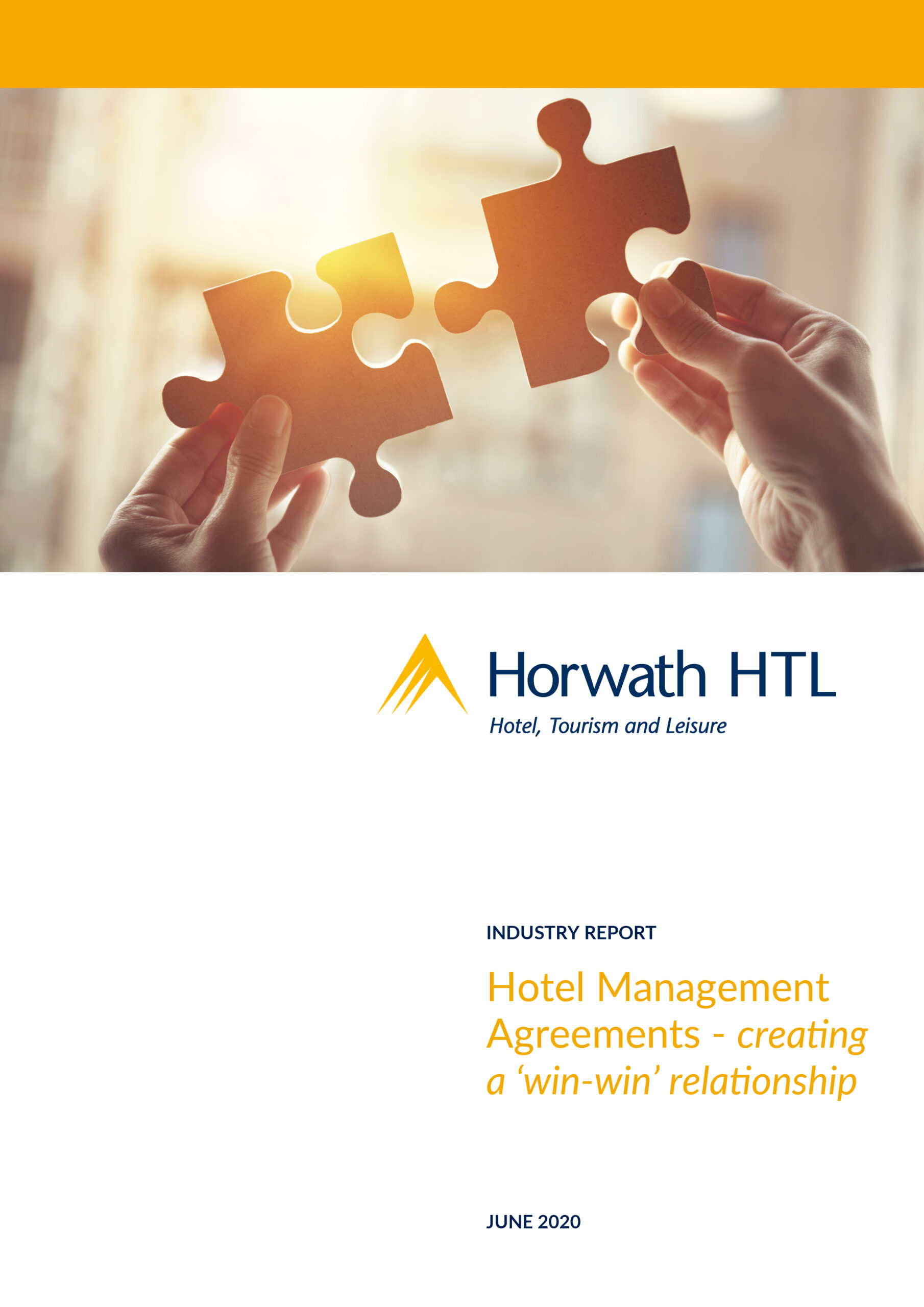
Report
Hotel Management Agreements: Creating a ‘win-win’ relationship
While the future cannot be perfectly predicted, protectants can be put into place that provides the option of a favorable choice of action. The COVID-19 pandemic has put additional pressure on hotel owners and operators, which in turn has resulted in disunity during a critical period. It is times like these, that owners and operators find the terms of their Hotel Management Agreement (HMA), which they had made clear sense at the time, did not stand the test of time.
Why is it essential for the HMA to be a win-win?
Some may call it a ‘rude awakening’, but perhaps it is more ‘trial by fire’ of the management agreement. In this report, we first discuss the importance of a ‘win-win’ HMA and why it matters. Then the pressure points of an HMA that are often highly contended such as the term, fees, centralized services, performance test, and the language found throughout most agreements. Finally, we conclude with guidance for hotel owners on the best methods to achieve a win-win HMA.
Importance of a Win-Win HMA
Investor Confidence:
- During uncertain times, a cohesive and trust-based relationship between owners and operators is essential to rejuvenate investor confidence.
Risk Mitigation:
- A balanced agreement mitigates operational risks and enhances the value or return on investment for both parties.
Operational Efficiency:
- Clear and fair terms enable owners to relax and operators to manage the hotel without interruptions, fostering a productive environment.
Key Components of a Hotel Management Agreement
Term (Brain):
- The term of the HMA dictates the length of the relationship. Too short a term can lead to management myopia, while too long a term with high termination costs can restrict an owner’s ability to trade the asset.
- The trend is moving towards shorter initial terms with provisions for extensions, allowing flexibility and continuation of a favourable relationship.
Management Fees (Bones):
- Management fees typically include base and incentive fees. These fees should align with the scale and complexity of the operator’s responsibilities, ensuring fair compensation and motivating operators to achieve financial goals.
- Minimum base fees should ensure the operator can fulfil their fiduciary duties without hedging against downside risks.
Centralized Services (Muscle):
- Centralized services, such as accounting, revenue management, recruiting, and training, support hotel operations. The cost of these services should reflect their value, enhancing the hotel’s efficiency without being a profit centre for the operator.
Performance Test (Liver):
- Performance tests provide owners with the right to terminate the HMA if the operator fails to meet agreed benchmarks, such as actual GOP or RevPAR falling below certain thresholds.
- These tests should identify underlying issues and offer remedies, maintaining the relationship rather than being purely punitive.
Language in the Agreement (Heart):
- Clear, concise, and balanced language is crucial. The HMA should outline roles, responsibilities, and flexibility to adapt to changing market conditions, ensuring both parties can operate effectively.
Strategic Considerations for Owners
Know Your Investment Objectives:
- Define your holding period and structure the agreement accordingly. Short-term plans should differ from long-term strategies.
Understand Your Asset:
- A comprehensive view of the asset’s potential, expenses, and risks is essential. Use meaningful performance benchmarks and ensure adequate insurance.
Mutual Understanding and Empathy:
- Align interests through perspective-taking, recognizing the efforts and resources invested by both parties. This alignment fosters a cooperative relationship.
Leverage Expert Advice:
- Engage hospitality experts with extensive experience in negotiating HMAs to ensure impartial and strategic input, strengthening your bargaining position.
A well-structured HMA is pivotal in navigating the challenges posed by the pandemic and future uncertainties. By fostering a balanced, transparent, and flexible agreement, hotel owners and operators can create a resilient and profitable partnership, ensuring long-term success in the hospitality industry.




